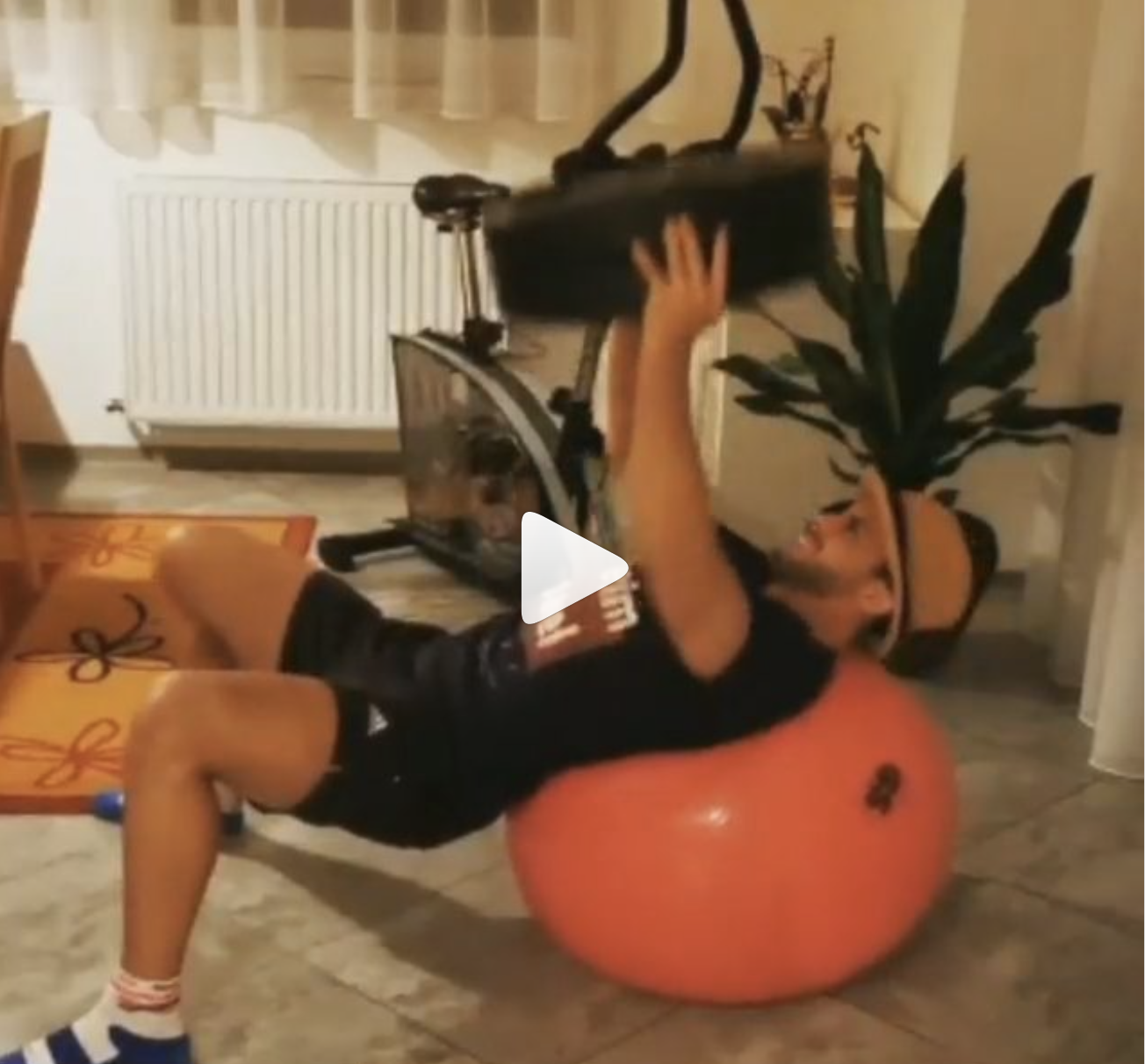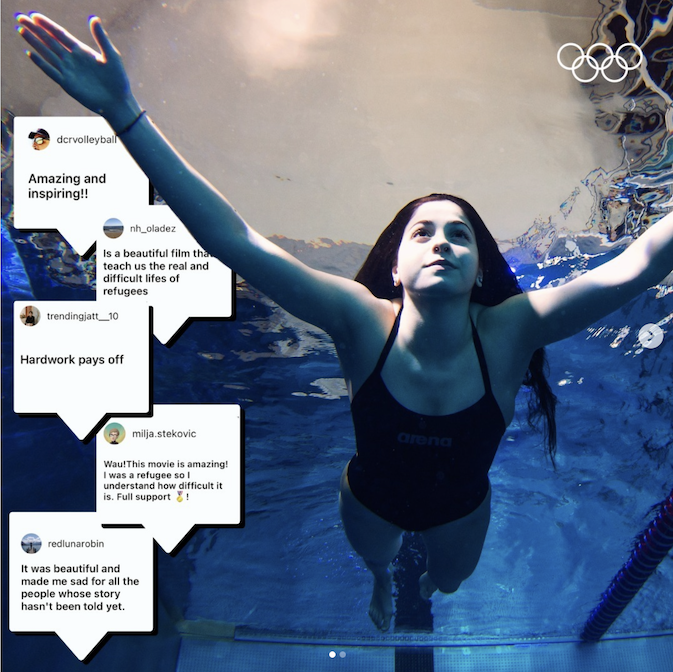Inspirational refugee athletes celebrate receiving host country citizenships in 2022


23 Dec 2022 – Four members of the International Olympic Committee (IOC)’s Refugee Olympic Team have received citizenship from their host countries in 2022, marking the next chapter in their inspirational journeys as they continue to send a message of hope and inclusion to millions of forcibly displaced people around the world.
Aker Schmid, the Iraq-born wrestler who competed for the IOC Refugee Olympic Team Tokyo 2020, became the latest refugee athlete to celebrate this milestone when he received his Austrian citizenship in November.
“It is a great honour for me to receive citizenship,” says the 23-year-old, who reached the quarter-finals of the men’s Greco-Roman 67kg wrestling competition at Tokyo 2020. “At first I couldn’t believe it, and only when I received the passport it became a reality for me. Now all doors are open for me to make a career as an Austrian athlete… and that’s what I’m going to do.”
Schmid took up wrestling as a nine-year-old in Iraq, but five years later was forced to flee the country when the Islamic State seized his home city of Mosul. After making the journey through Kurdistan to Europe, he eventually found refuge in Austria.
“At first it was hard for me to accept that I have to stay in Austria, but after a short time I knew that it was my destiny to come here,” he recalls. “Through wrestling I got a second family and then also met and fell in love with my wife.
“I am very happy to now fight in the competitions and big events representing the Austrian flag. I will give my best and I am already looking forward to all my upcoming big adventures.”


“The future is very bright”
Schmid joins fellow IOC Refugee Olympic Team members Cyrille Tchatchet II, Aram Mahmoud and Yusra Mardini in receiving citizenship from their host countries in 2022.
Tchatchet, who competed for the IOC Refugee Olympic Team Tokyo 2020, finishing 10th in the 96kg weightlifting competition, is now representing Great Britain, having sought asylum there after the 2014 Commonwealth Games in Glasgow.
“I now represent Great Britain, which makes me feel included. I’m really honoured,” says the 26-year-old, who also works as a psychiatric nurse. “Like all other athletes, refugees have dreams to go to the Olympic Games. I want them to know that it’s always possible – they need to keep training, remain hopeful and compete as often as they can. If they do this, the future is very bright.”
“Sport helped me a lot”
Badminton player Mahmoud, who fled Syria’s war-torn capital of Damascus in 2015, also competed at Tokyo 2020 for the IOC Refugee Olympic Team and is now settled in the Netherlands, where he was awarded citizenship earlier this year.
“It has been a journey of a lot of ups and downs,” he says. “Because of the sad situation in my home country of Syria, I had no choice but to leave, but when I first came to the Netherlands, badminton helped me a lot to integrate with others and learn the language.
“Sport helped me a lot, mentally – to be able to forget all the stuff that is going on in the world and in Syria, and just focus on playing badminton.”
“I feel like I’ve lived two lives”
Mardini’s extraordinary journey from war-torn Syria to joining the first-ever IOC Refugee Olympic Team at the Olympic Games Rio 2016 made headlines around the world, and has since been immortalised on film in The Swimmers.
After being part of the Refugee Olympic Team again at Tokyo 2020, Mardini has now become a German citizen, having set up a new life there after her dramatic escape from her homeland.
Her story has since inspired people all over the world, with Mardini also becoming the youngest-ever Goodwill Ambassador for UNHCR – the UN Refugee Agency.


“It’s crazy because I feel like I’ve lived two lives,” she said earlier this year. “More has happened in the past five years since I left Syria than the first 17 put together.
“I sometimes feel like I’m 50 years old because of everything that has happened. But I have learnt from everything; going from this little girl that just focused on swimming and winning gold medals to escaping war and representing millions around the world – that has opened my eyes so much and changed the way I think.”
A message of hope
The IOC decided to create the first-ever Refugee Olympic Team in 2015, with 10 athletes – originally hailing from Ethiopia, South Sudan, Syria and the Democratic Republic of the Congo – going on to compete in the Olympic Games Rio 2016. The team sent a message of hope and inclusion to millions of forcibly displaced people around the world, inspiring the world with the strength of their human spirit.
Following the team’s success, a dedicated Olympic Solidarity programme was created to support 56 promising refugee athletes from 13 countries in the build-up to the Olympic Games Tokyo 2020, where the Refugee Olympic Team participated once again, with 29 athletes competing in 12 sports. The IOC has since announced that the team will continue for the Olympic Games Paris 2024.
To date, 52 athletes have been awarded Olympic Scholarships for Refugee Athletes to help them train towards their goal of competing at Paris 2024. They are from 12 countries, live in 18 host countries, represent 10 sports and all hope of being selected for the IOC Refugee Olympic Team.
Follow their journey on social media
The composition of the IOC Refugee Olympic Team Paris 2024 will be announced in 2024. The Refugee Athlete Scholarship-holders’ stories and journeys can be followed on the IOC Refugee Olympic Team social media handles, and under the hashtags #RefugeeOlympicTeam and #OlympicRefuge.





